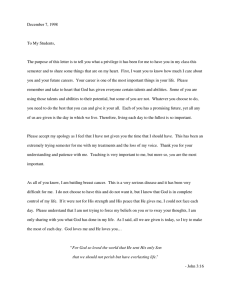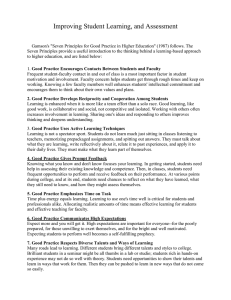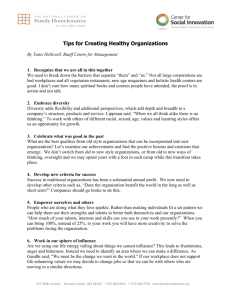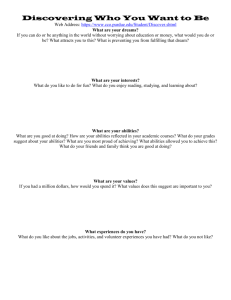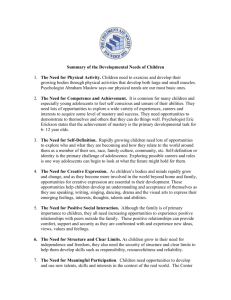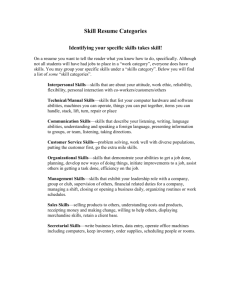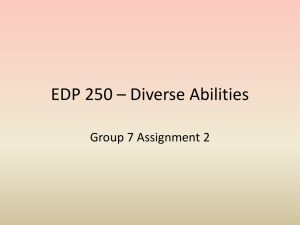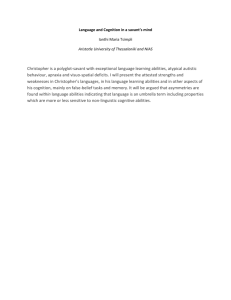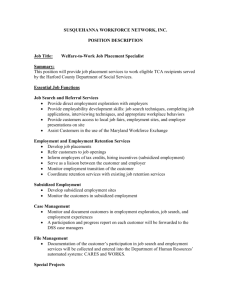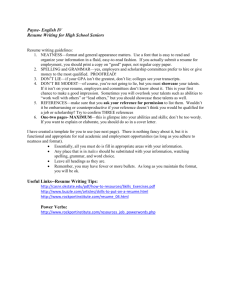Skills Inventory - Illinois State University
advertisement
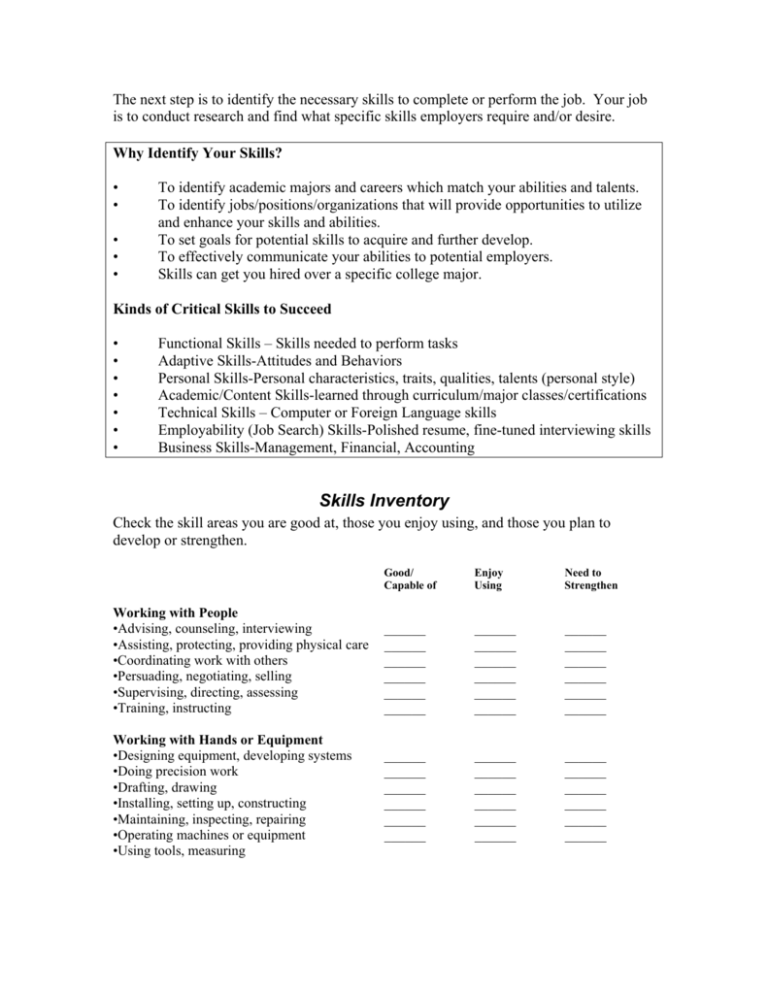
The next step is to identify the necessary skills to complete or perform the job. Your job is to conduct research and find what specific skills employers require and/or desire. Why Identify Your Skills? • • • • • To identify academic majors and careers which match your abilities and talents. To identify jobs/positions/organizations that will provide opportunities to utilize and enhance your skills and abilities. To set goals for potential skills to acquire and further develop. To effectively communicate your abilities to potential employers. Skills can get you hired over a specific college major. Kinds of Critical Skills to Succeed • • • • • • • Functional Skills – Skills needed to perform tasks Adaptive Skills-Attitudes and Behaviors Personal Skills-Personal characteristics, traits, qualities, talents (personal style) Academic/Content Skills-learned through curriculum/major classes/certifications Technical Skills – Computer or Foreign Language skills Employability (Job Search) Skills-Polished resume, fine-tuned interviewing skills Business Skills-Management, Financial, Accounting Skills Inventory Check the skill areas you are good at, those you enjoy using, and those you plan to develop or strengthen. Working with People •Advising, counseling, interviewing •Assisting, protecting, providing physical care •Coordinating work with others •Persuading, negotiating, selling •Supervising, directing, assessing •Training, instructing Working with Hands or Equipment •Designing equipment, developing systems •Doing precision work •Drafting, drawing •Installing, setting up, constructing •Maintaining, inspecting, repairing •Operating machines or equipment •Using tools, measuring Good/ Capable of Enjoy Using Need to Strengthen ______ ______ ______ ______ ______ ______ ______ ______ ______ ______ ______ ______ ______ ______ ______ ______ ______ ______ ______ ______ ______ ______ ______ ______ ______ ______ ______ ______ ______ ______ ______ ______ ______ ______ ______ ______ Communicating •Explaining, answering questions •Extensive reading, active listening •Following written and oral instructions •Making presentations •Public speaking, broadcasting, entertaining •Writing, preparing reports ______ ______ ______ ______ ______ ______ ______ ______ ______ ______ ______ ______ ______ ______ ______ ______ ______ ______ Organizing Information •Analyzing, interpreting, evaluating •Developing ideas •Gathering information, conducting research •Keeping records, cataloguing •Making diagrams •Planning, making decisions ______ ______ ______ ______ ______ ______ ______ ______ ______ ______ ______ ______ ______ ______ ______ ______ ______ ______ Working with Math •Analyzing numerical data •Calculating, computing, applying formulas •Developing budgets •Mathematical reasoning ______ ______ ______ ______ ______ ______ ______ ______ ______ ______ ______ ______ Special Activities •Attention to detail •Managing time/resources •Memorizing •Performing, creating art •Quick thinking •Spatial visualization ______ ______ ______ ______ ______ ______ ______ ______ ______ ______ ______ ______ ______ ______ ______ ______ ______ ______ These activities should set the stage and help you begin thinking about what you value in work environments, as well as the skills needed to perform certain jobs. The challenge is for you to create opportunities that will help you develop the needed skills to be successful in your desired career field. Try to match jobs/career fields and organizations that will utilize and complement your skills and talents. Good luck!
